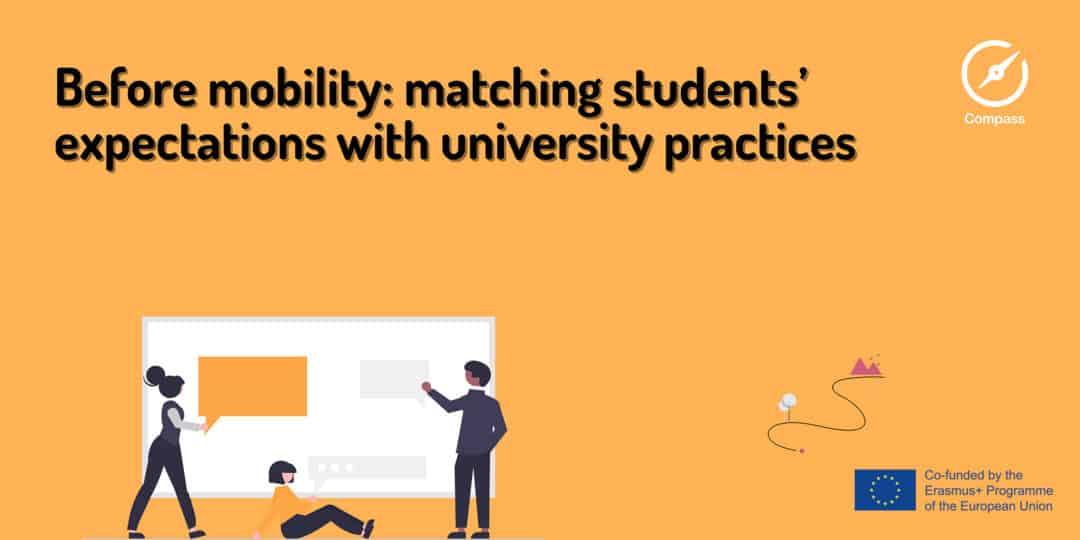A mobility experience abroad has become an essential step of the personal and academic journey of students. Yet, finding the most suitable academic path is not easy, especially when students do not have the same access to information and opportunities due to their social and cultural background.
The “COMPASS – orienting you towards your best international mobility choice” project was designed to offer high quality and inclusive support to outgoing students, everywhere in Europe. The consortium is coordinated by ESN France and includes the University of Vienna, the University of Hertfordshire Higher Education Corporation, the Erasmus Student Network, ESN Italia, and the European University Foundation.
On March 28, the partners organised a webinar to disseminate the initial main outputs of the project. The first presentation addressed the motivations, needs, and expectations of prospective students, as revealed in the 2021 study report. The research already pointed to the importance of starting the planning process earlier, contacting former exchange students or studying abroad representatives, and clarifying the communication materials, especially on administrative processes which students perceive as more burdensome and complex. Secondly, a presentation of stakeholders’ practices was delivered with the goal to identify the potential collaboration points between, for example, various groups within the home university, student organisations, private entities, National Agencies and Embassies. The online event concluded with a checklist for Higher Education Institutions (HEIs) staff (available soon) to better analyse their own procedures to support students and understand how they can be improved.
The Compass project will provide common pedagogical tools, as well as maximise the functionalities of the Compass peer-to-peer platform, an online platform implementing an automated matching system, thus guaranteeing easier access to quality information and stronger collaborations between stakeholders. It will also strive to foster both international mobility and the internationalisation at home, promote intercultural exchanges, and raise awareness about European dialogue and citizenship.
If you are interested in the topic, make sure to join our upcoming webinar Preparing Students for Mobility: The Role of Peer-to-Peer Interaction and How the Compass Platform Can Help You on April 27th, from 10:30am to 12:30pm CEST! The event is free, but registration is required via this address: m.j.rosier@herts.ac.uk.

